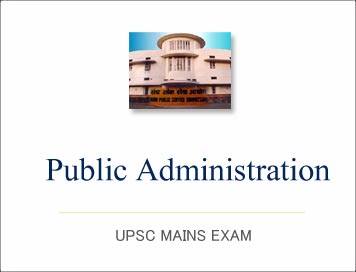(Online Course) Pub Ad for IAS Mains: Rural Development: Urban Local Government: Global Local Debate (Paper -2)

(Online Course) Public Administration for IAS Mains Exams
Topic: Rural Development: Urban Local Government: Global Local Debate
In simple terms global means to think and act globally. Similarly local means to think and act locally. The phrase “Think globally, act locally” or “Think global, act local” has been used in various contexts, including town planning, environment, education, mathematics, and business. “Think Globally, Act Locally” originally began at the grassroots level, however, it is now a global concept with high importance. It is not just volunteers who take the environment into consideration. It is corporations, government officials, education system, and local communities. The original phrase “Think global, act local” has been attributed to Scots town planner and social activist Patrick Geddes. Town planning is important to understanding of the idea “think globally, act locally”. Urban management and development highly impacts the surrounding environment. The ways in which this is initiated is vital to the health of the environment. Corporations need to be aware of global communities when expanding their companies to new locations.Not only do corporations need to be aware of global differences, but also Urban and rural areas who plan on expanding or changing the dynamics of their community.
With the evolving nature of the urban management where New Public Management, Public Choice Approach & other theories have taken their course & nation has become a unit of the greater globalized world, what should be the priority of the administration ? The volatile competitive environment both private and public organizations are subject to fundamental global-local debate. From the point of Urban Local Government i.e. municipalities,this debate revolves around the issue of balancing between pressures exerted by the competitive environment on one hand and local political autonomy on the other hand i.e. how to remain sensitive to local problems even while pursuing global standards.
Following the “think globally, act locally” logic, a organization would emphasize the synergy created by serving multiple markets globally, but formulate a distinct competitive strategy for each specific market that is tailored to its unique situation. Indeed, to some extent, actions that reflects both globalization and localization may be prevalent with most multinationals. The core question at the strategy or action level is not one of either globalization or localization—or even the ostensible compromise position of regionalization—but one of how to balance or synthesize the two alleged extremes.
Thinking Global
Even today, scholars continue to debate the meaning of the term. Globalization can be viewed an intensification of world consciousness where mass communication has the potential to break down national borders to better satisfy the needs of consumers, markets, and organization. It is the process that pertains to changes in economic and political spheres that bring the world together.
Acting Local
Localization implies that a organisation gives its primary attention to issues at the local level. Hence, “acting local” is all that is required for organizations whose strategies suggest that managers “think local.” For a organisation operating across borders, localization suggests that strategies reflect a strong effort to tailor firm activities to the specific needs of each location.
In conclusion, perhaps scholars should reconsider the questions they are asking when assessing the “think global, act local”phenomenon. Instead of attempting to determine whether global, regional, or local action is appropriate, greater emphasis could be placed on identifying which and how organizational, industrial, and environmental factors should be evaluated when seeking to balance the global-local perspectives at the organizational level. Such efforts can assist organizations in developing their own perspectives on a challenge central to their strategic success.
